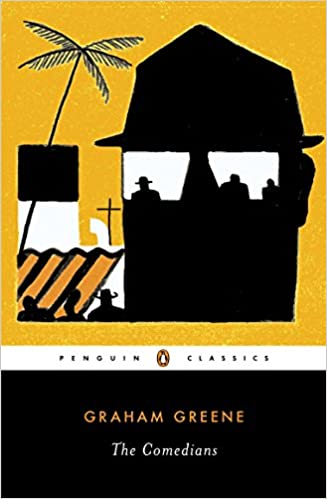The Comedians by Graham Greene
Tags: general-fiction,
This one starts off a little slowly, and as I reached the end of the first chapter, I started to think it might be the first Graham Greene novel I wasn’t going to like. I’m glad I stuck with it. This book builds quietly and subtly, and in the end has tremendous power, portraying tragedy on the scale of both the individual and the nation.

The title, “The Comedians,” refers to the role the characters Brown and Jones see themselves playing in a world gone awry, in which they can depend on nothing. They see themselves as comic actors in a farce. The tragedy of Brown, the main character who owns a hotel in Haiti, is that he is unable to love or trust, even when love and trust are freely offered to him. The tragedy of Jones is that he may one day be called to be the person he pretends to be, and he is always pretending, just to get by. The tragedy of the third major character, Smith, is that he is blinded by his ideals, which are so clear and sensible to him, he thinks that merely presenting them to others will be enough to persuade them.
Brown’s lover, Martha Pineda, is too strong, too practical, and too aware, to be an entirely tragic figure. She understands the world, and is able to navigate it. You have the sense she’ll be able to take care of herself, but still, you wish something better for her.
The real victims are the people of Haiti, who are powerless and hopeless under the profoundly destructive rule of “Papa Doc” Duvalier. Greene does an excellent job of evoking the horrors of totalitarian dictatorship in the third world. This book is an interesting counterpart to Orwell’s “1984.” Greene is aware of the farcical elements of totalitarianism, and of how damaging they can be to the people of an impoverished, subjugated nation.